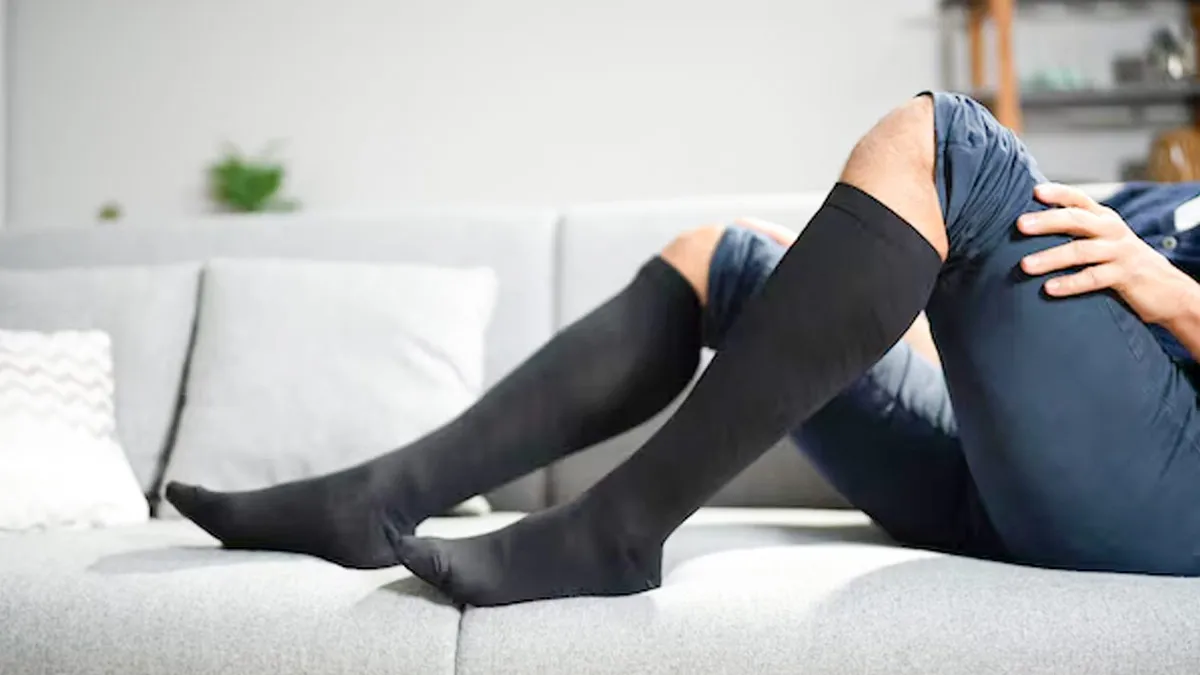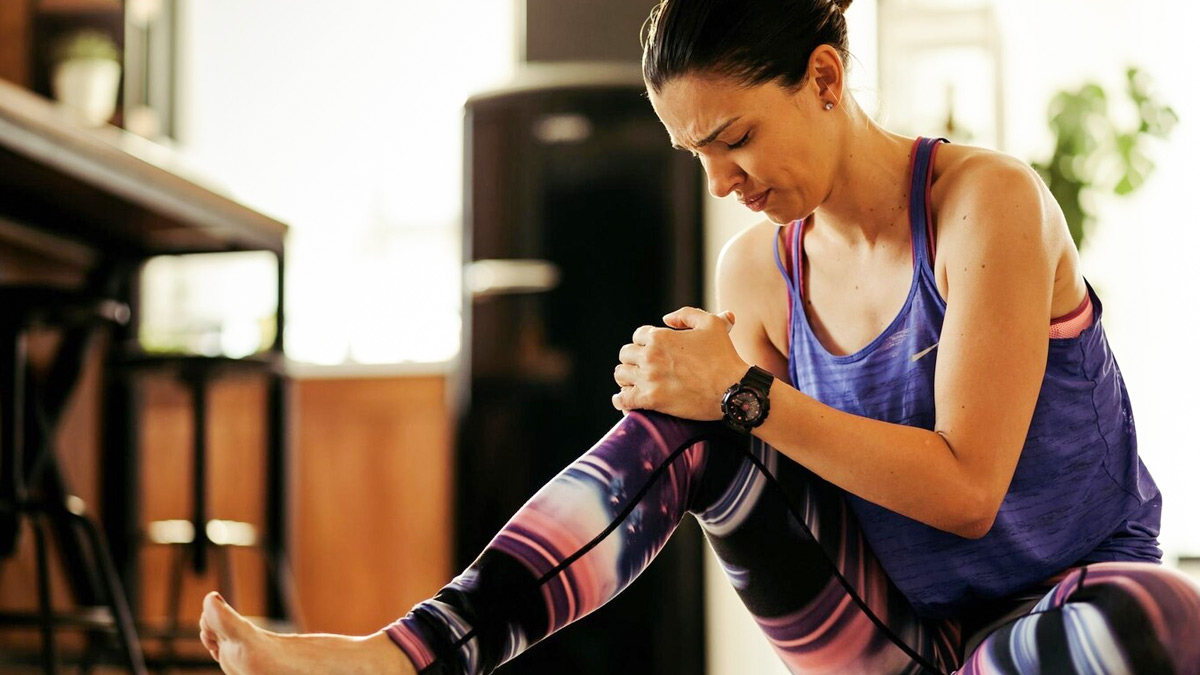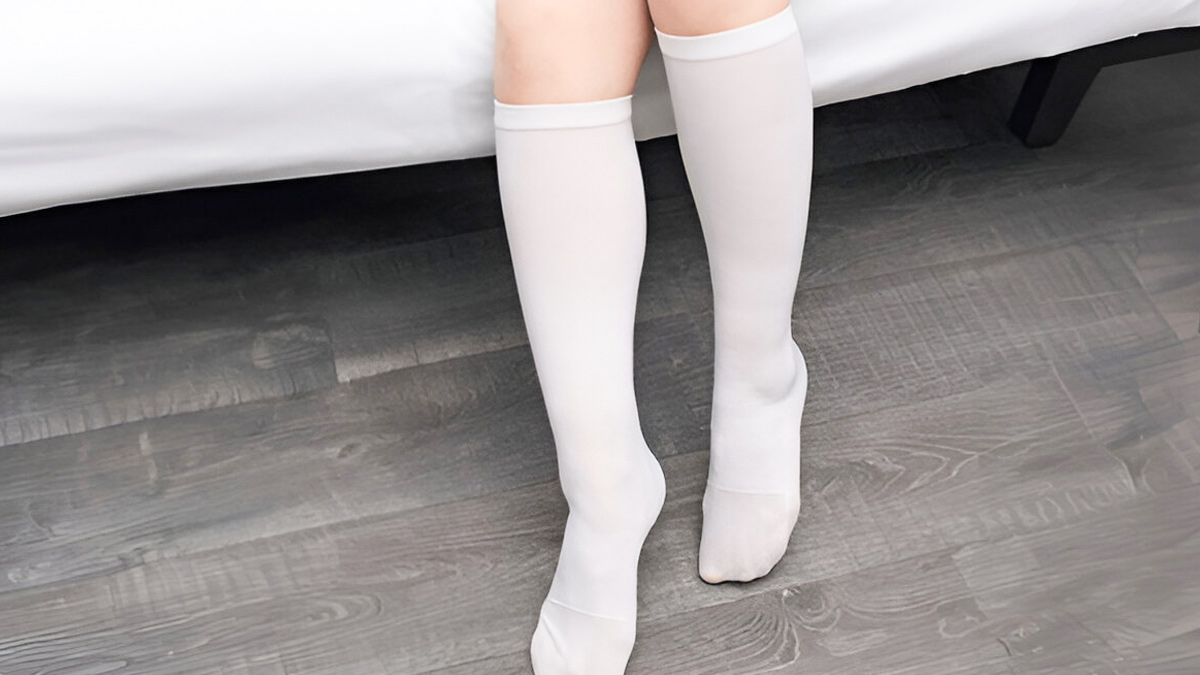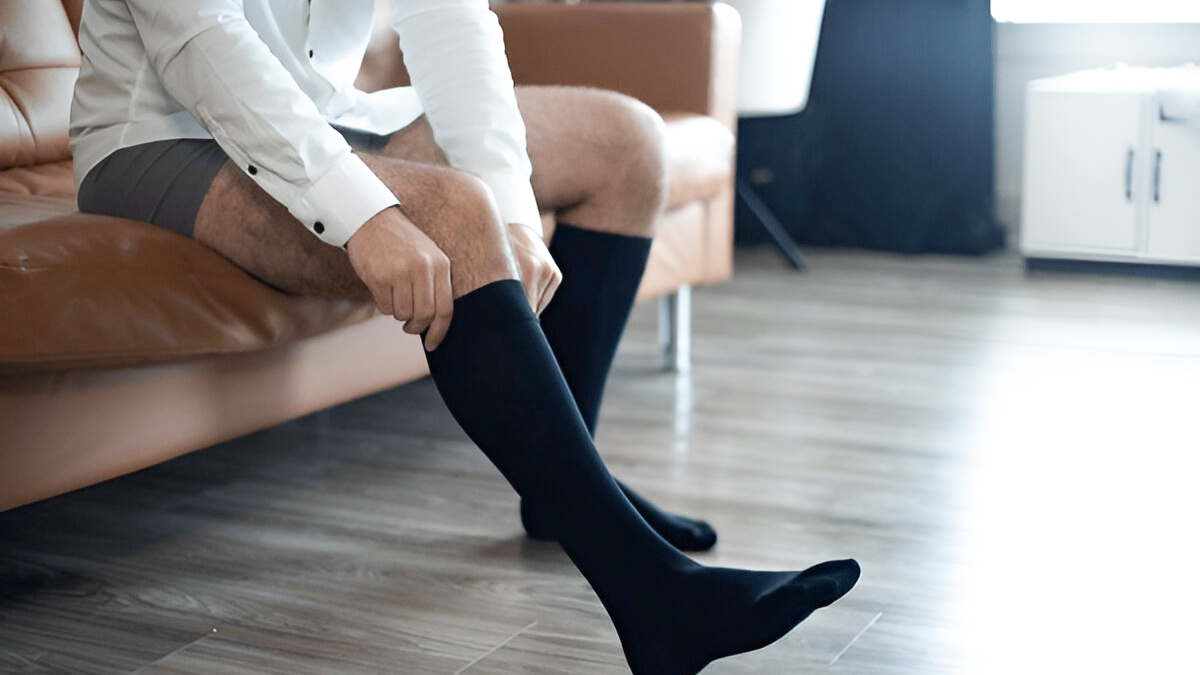
Whether you're on your feet all day or preparing for a long flight, it is crucial to maintain healthy blood circulation. Leg pain, numbness, tingling, swelling, and changes in skin colour can all signal poor blood flow in the body. That’s where compression socks often come in. But despite their growing popularity, compression socks aren’t suitable for everyone. So before you slip on a pair, it’s important to know who can truly benefit from them, and who might be better off without them.
Table of Content:-
Also Read: How Minimally Invasive Vascular Surgery Is Helping Save Limbs, Expert Explains
What Are Compression Socks?

Compression socks are tight-fitting socks that squeeze your legs to ensure proper blood flow. In an interaction with the OnlyMyHealth team, Dr Nitin Pradeep Gundre, Consultant Cardiovascular Surgeon, K J Somaiya Hospital and Research Centre, Mumbai, suggests that compression socks reduces the chance of blood clots by helping veins pump blood back to the heart, while supporting overall vascular health and help in recovery.
A 2017 review published in the Phlebology: The Journal of Venous Disease looked at over 2,400 studies and found strong evidence that compression stockings help manage conditions like varicose veins, leg swelling, and venous ulcers. Experts made 25 key recommendations showing that these stockings are especially helpful for easing symptoms, healing leg ulcers, and reducing pain after procedures or in cases of Deep Vein Thrombosis (DVT).
Who Should Wear Compression Socks?

"Compression socks or stockings should be used by people who stand or sit for a long period, such as nurses, travelers, and office workers, who have lots of benefits from compression socks. They’re also useful for athletes, pregnant women, and people with varicose veins or poor blood circulation," says Dr Gundre.
By increasing the blood flow and reducing the swelling, compression socks can prevent people from fatigue.
Who Should Avoid Wearing Compression Socks?
According to Dr Gundre, compression socks can be unsafe for people with certain conditions like Peripheral Artery Disease (PAD), arterial insufficiency, or skin infections. “These socks can decrease the blood flow further,” he warns, advising people to always consult a doctor before use, especially if there are blood circulation-related issues, to ensure they’re appropriate for your condition.
Also Read: Varicose Veins And Spider Veins: Are They The Same?
How To Choose The Right Compression Level?

"The level of compression should always be tailored to the individual's needs," explains Dr. Gundre. "For everyday wear, a mild compression of 8–15 mmHg is usually sufficient. If you're travelling or dealing with mild varicose veins, 15–20 mmHg can help. Moderate varicose veins, pregnancy-related swelling, or post-surgical recovery may require 20–30 mmHg. For more severe venous issues, we consider 30–40 mmHg. But it’s important to consult a doctor before choosing a compression level to ensure it's both safe and effective for your condition.”
Side Effects To Watch Out For
Wearing compression socks for a long time can cause complications like skin irritation, restricted blood flow, or pressure sores. Moreover, wrong sizing or rolling down of the socks can also affect the circulation negatively.
Dr Gundre says that it’s important to follow the usage guidelines, remove them regularly, and ensure the fitting is proper.
Conclusion
Compression socks can do wonders for tired legs, swelling, or circulation issues. However, they’re not meant for everyone. As Dr Gundre points out, it’s not just about wearing them, but wearing them right. Picking the correct compression level and fit makes all the difference, and getting a doctor’s advice ensures you’re not doing more harm than good, especially if you have any underlying health conditions. So before buying a pair, take a moment to check in with your body and your doctor.
Also watch this video
How we keep this article up to date:
We work with experts and keep a close eye on the latest in health and wellness. Whenever there is a new research or helpful information, we update our articles with accurate and useful advice.
Current Version
Jun 05, 2025 15:16 IST
Published By : Tenzin Chodon